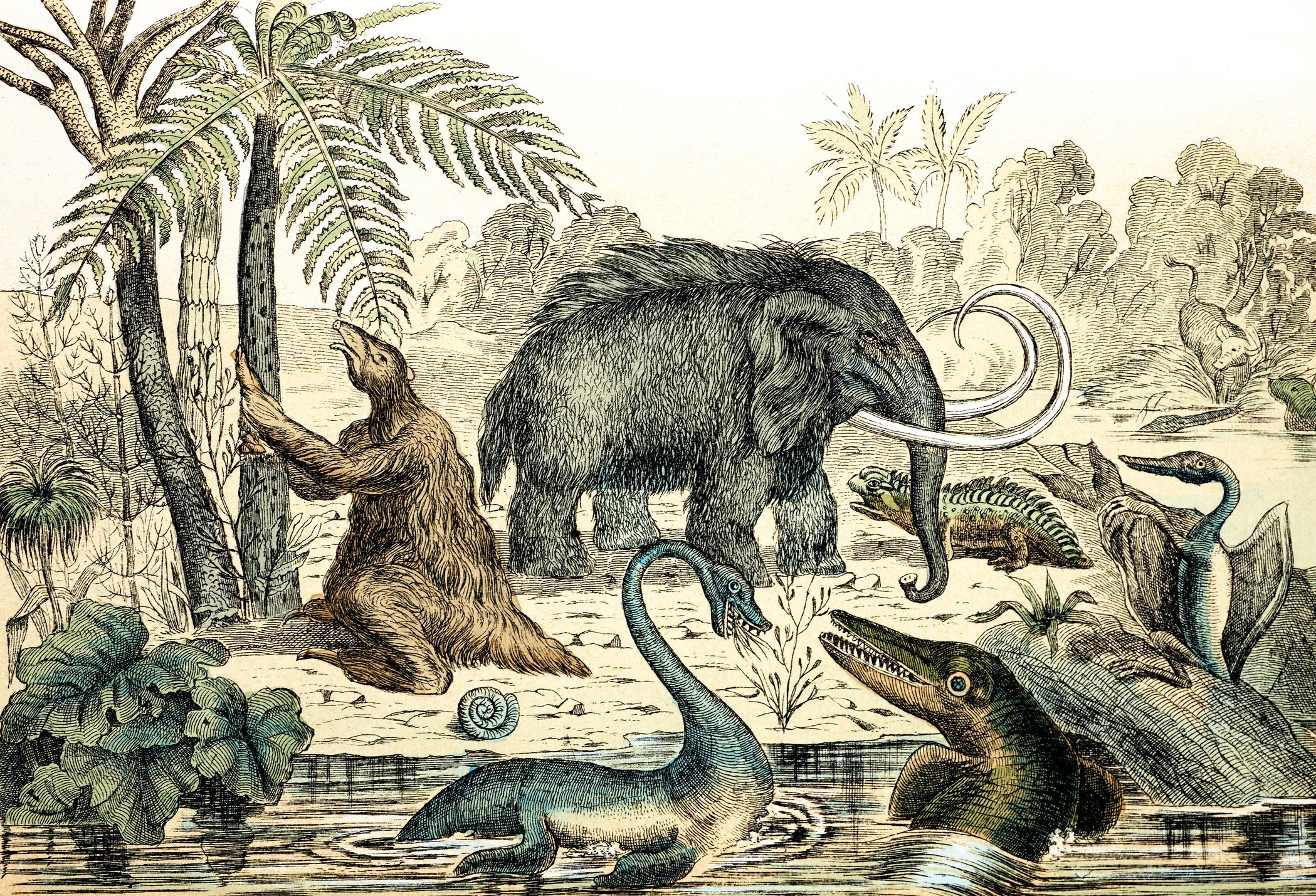Mea Culpa: Editor vs prey
Susanna Richards navigates the primordial jungle that is last week’s Independent

The hunters became the hunted in a fascinating report about the identification of an enigmatic quadruped that appears in 19th-century rock paintings in South Africa, in which we included a selection of charmingly airbrushed illustrations of the animal in question (which was apparently about the size of a sheep, and looks about as dangerous). “If the artwork is found to show a dicynodont – a species that became extinct before dinosaurs – then the San people’s depiction could predate the first scientific description of the ancient beasts by at least 10 years,” we wrote.
It was not really our fault. The word “pre-date” is most commonly written without a hyphen, and thus it is perfectly acceptable to write it that way, but in the context one might be forgiven for reading it as a reference to, well, predation rather than chronological order. My mind was filled with images of the creature in the paintings coming to life and rapaciously consuming the scientists’ research, thus re-establishing its mystique and rendering itself unidentifiable in perpetuity.
There was a related incident in an article about the allegations against the late owner of a certain department store in London – “the posh shop”, as my Auntie Rosa once described it to me and my sister, which, given that Auntie Rosa was herself extremely posh, carried implications of unfathomable grandeur (“They sell crocodiles, you know”) – in which we quoted one of the poor women who had worked for this chap. “Unbeknownst to me, I had walked into a lion’s den,” she said, according to our report. “... The chairman prayed on the most vulnerable.”
From the information available, it seems as though praying was the last thing he was doing with his vulnerable employees, and the spelling was duly corrected.
Not so clever: We were alerted by a reader to another embarrassing mistake, this time in an article about problems with what we referred to twice as “smart metres”. It was spelt correctly 17 times in the same piece, but that is not the point. Thanks to Paul Edwards for letting us know.
Ambulatory care: An extraneous word attracted our attention in a report of a compensation claim brought against Alder Hey, in which we described it as “the Liverpool-based hospital”, thus conjuring an image of a roving facility a bit like Howl’s moving castle. Normally, we say that something (or someone) is “based” in a particular location if they operate in and around it, or perhaps engage in business elsewhere, as in the case of a company’s headquarters. But hospitals don’t generally get up and wander about, and their services tend to be local, so we amended the sentence to reflect that.
A worthy cause: We’ve been getting in a muddle about our apostrophes again, except this time we’ve been leaving them out instead of putting them in. “The row about Ms Gray’s pay comes as Sir Keir is embroiled in a controversy of his own after accepting tens of thousands of pounds worth of gifts from a major Labour donor, including thousands of pounds worth of clothes for his wife,” we wrote in a news article. As astute readers will notice, there are two apostrophes missing from that sentence.
This use of the possessive is a frequent tripper upper of writers and editors alike, but it is really not that complicated. In a phrase such as “a pound’s worth of apples”, the use of an apostrophe is not controversial. So we have established that the pound in question is an object, and that its worth – its equivalent value in apples, for instance – belongs to it, and thus an apostrophe is required; the only difference in the article above is that the value belongs to thousands of pounds, rather than one, so the apostrophe goes after the “s” as you would expect.
The only time when we don’t put one in is if the amount is written numerically, when we use symbols to denote the value, for example “£45 worth of damage” or “£350m worth of designer clothing” (not to get ahead of ourselves, but that Starmer fellow is clearly one to watch).
Racing uncertainty: A comment piece about the F1 driver Max Verstappen expressed concern at his apparent disaffection with the sport. “Fatigue and indignation are not two profitable combinations,” we noted. Indeed they are not, remarked reader Roger Thetford: they are two factors that may combine. It reminds me of the old joke, “What is the difference between a duck? One of its legs is both the same.”
On that note, I had probably better get back to my proper job. Until next time, watch out for sheepish-looking animals, because you never know.
Join our commenting forum
Join thought-provoking conversations, follow other Independent readers and see their replies
Comments
Bookmark popover
Removed from bookmarks